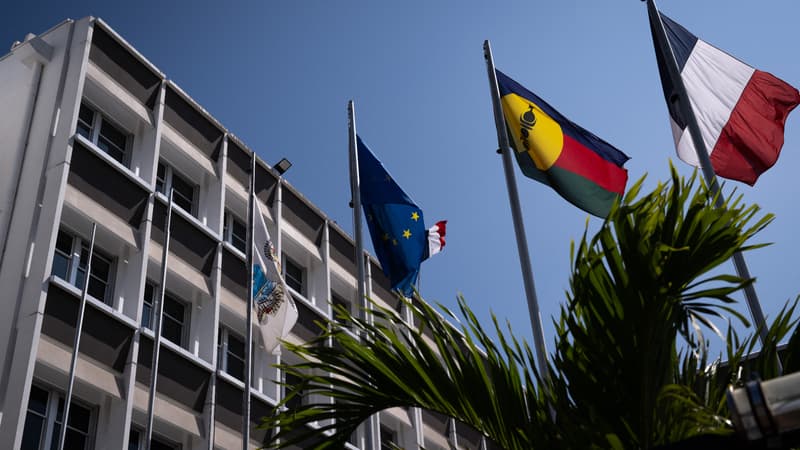Empty rays, blackened walls, weighing silence: one year after the riots, David Guyenne’s burnt shopping center in Nouméa remains frozen in chaos. Nothing has moved, such as New Caledonia and its economy at a stop.
“What we would like now is to change the sequence,” blows the president of the Chamber of Commerce and Industry (CCI). “A year has passed in survival, hate, destruction, bankruptcy.”
His building, which housed an intermark, a bank, a bakery, a medical center, only saw the pharmacy on the other side of the road. Part of the complex will be saved, the rest is waiting to be demolished, time to get along with insurance.
On Monday, the Minister of overseas, Manuel Valls, brought together independence and non -independent delegations in the Chamber to try to sign an agreement on the future of the archipelago, Exsangue after the violence of May of 2024, which left 14 dead and more than two billion euros in damages. An agreement more than ever necessary.
Because at the economic level, Nueva Caledonia continues to sink. According to the CCI, 11,000 jobs have been eliminated since May 2024. Consumption collapsed, the exits: 12,900 more than arrivals for a year at the end of March, according to data from the Nouméa airport, accelerate.
“A dark boat”
And the trust of business leaders, already fragile, is more crossed out. In February, a study commissioned by the CCI revealed that 79% of companies did not trust the future of the territory, against 63% in October 2024.
“The economic fabric weakens a lot and all indicators show that one is not far from a systemic collapse,” summarizes David Guyenne.
In the great customer store of his department, Thierry Lebiez, managing director of the Modulia group, summarizes the atmosphere: “Nothing is happening!” His turnover has collapsed from the riots and “is worse to worse,” he says. “We are like a boat sinking gently while palmless.”
However, he also believed in a recovery. After the first catastrophic months, “a dynamic was implemented more or less and everyone thought, at one time, something was going to happen,” he explains. The discussions about the political future of the territory that externalize, wait for it and won.
Thierry Lebiez, however, did not graduate. His group, more solid than others, resisted the clash. But existing help (tax exemption, partial unemployment devices) are no longer enough for many entrepreneurs.
“We need a trust click as a political agreement could be,” insists David Guyenne.
The most fragile in the front line
On the docks of Nouuméa, near the port, therefore, the cruises sometimes pour Australian tourists, Pierre-Alain’s Sunday is good, somehow. This 39 -year -old restorer opened his snack in July 2023, a few months before the disturbances.
Consumption is fighting. “Since we have no visu in the future, people are very careful what they spend,” he says.
Work seven out of seven, without salary, electricity bills that were tutoring the 1,000 euros: “If I had to do it again, I will not do it again,” confesses this metropolitan, convinced that “90% of professionals (their business) if they had a good offer.”
Among the most weakened, there are also those who have lost everything. Like Eric, 54, crossed in a park in Nouuméa, a book in hand. Originally from the Wallis-Et-Futuna archipelago, this former employee of a waste management company was fired after the disturbances, his company’s facilities were destroyed.
The man had to leave his accommodation. “Having to live again with his sister at my age is difficult,” he slides. He enrolled in the Giep-CS, a training organization for employment applicants, but “we are 100 for a place.”
Tonight again, he will return home, in the sixth kilometer district. From the riots, the bus ticket costs 500 peaceful francs (4.2 euros). Too expensive.
Source: BFM TV


